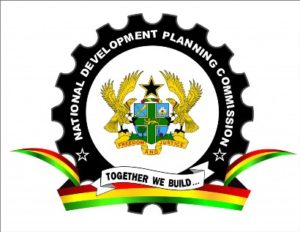NDPC launches Ghana’s Second Voluntary National Review
 The National Development Planning Commission (NDPC), has launched processes towards the
The National Development Planning Commission (NDPC), has launched processes towards the
preparation of Ghana’s second Voluntary National Review (VNR) report of the 2030 Agenda for Sustainable Development.
The report will be presented at the 2022 High Level Political Forum (HLPF) at the United Nations (UN).
World leaders in 2015 adopted the Sustainable Development Goals (SDGs) to address the unfinished business of the Millennium Development Goals (MDGs).
Its implementation has produced multifaceted outcomes in Ghana.
As part of the follow-up and review mechanism for the SDGs, member states are encouraged to conduct voluntary, regular, and inclusive reviews of
progress at the national and sub-national levels to share experiences, including successes, challenges, and lessons learned.
These reviews serve as basis for annual reviews at the HLPF held under the auspices of the Economic and Social Council (ECOSOC) of the United Nations General Assembly.
Speaking at the virtual event, Dr Kodjo Esseim Mensah-Abrampa, Director-General, National Development Planning Commission (NDPC), said Ghana had the opportunity to present its Sustainable
Development Goals (SDGs) report two years ago at the VNR for the world to see what they were doing and how they were progressing in responding to the global mission.
“We have another VNR presentation to the world again next year, although it is next year, preparations must start.”
He said that there were many activities that simultaneously needed to be undertaken, such as the Data to analyzed to support their evidence and also the organizational part of it – liacing with other stakeholders.
“This has become necessary for us because for Ghana we thought we have been working on this process for quite sometimes. Realizing the effect of covid, we recognised the fact that the momentum went down with it,” he said.
“To bring this whole thing back again and be able to retrade the path which we have been in for these years, we decided that a big opportunity provide by the platform of the UN, which we should take advantage of and report ourselves again to the world what we have been accomplishing even within the covid period.”
This, he said would serve as a motivation for them to keep on with the work and put it on next year, as they were getting very close to the middle part of the implementation of SDGs – just about 15 years to the accountability period.
Dr Mensah-Abrampa said Ghana had some experiences and lessons to share on the global platform, adding that Ghana could also learn from other countries.
“We also think that it means for us to mobilize some support and encouragement from the global platform and see how we can hold hand in hand with other countries in this same pursuit of working towards the SDGs,” he said.
“We also recognised the fact that going through last year whilst we compile our report, we also realized that a lot of new innovations and strategies have come up as a response to the COVID-19 and what we are doing to still respond to our challenging goals.”
Professor Samuel Kobina Annim, Government Statistician, said Ghana would be one of the 25 countries which would be reporting for the second time.
He noted that Ghana was coming out strongly as a unique country having the opportunity to present its SDGs report for the second time.
Mr Charles Abani, the United Nations Resident Coordinator in Ghana, lauded the Government of Ghana for its efforts to establish a strong institutional mechanism for the implementation of the SDGs, and the advancement made in planning, implementing and tracking and reporting on the SDGs.
In July 2019, Ghana joined 50 other countries to present their maiden Voluntary National Reviews showcasing progress made in attaining the 2030 Agenda on the theme, “Empowering people and ensuring inclusiveness and equity”.
Ghana’s VNR process will be coordinated by the SDGs Implementation Coordinating Committee (ICC), under the supervision of the High – Level Ministerial Committee on SDGs.
The process had three main components, namely; the policy and regulatory environment for implementing the SDGs; progress of implementation of the 17 goals; and three cross-cutting themes – Youth engagement in the SDGs; Leave no one behind and Synergies across the goals.
Source: GNA
